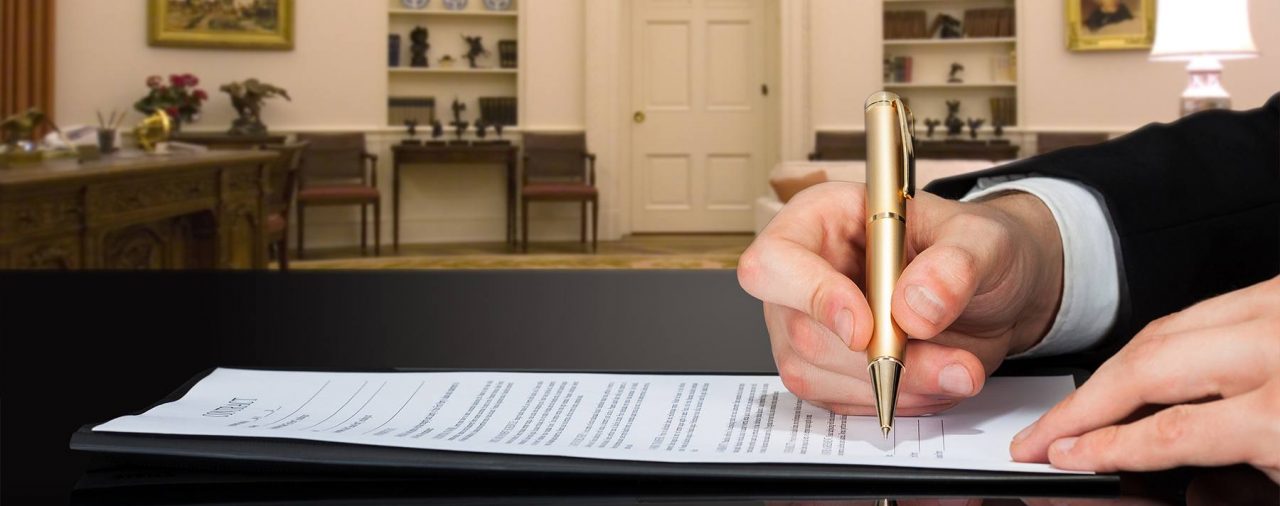Content Highlights
On July 9, 2021, President Biden issued an Executive Order addressing threats to our economic liberty, stating that employees should have the freedom to switch jobs and negotiate a higher wage. The Order seeks to promote competition in the American economy.
At Gardner Employment Law, we specialize in non-compete agreements. Give us a call today if you need help in deciding what to do about your non-compete agreement.
What Did President Biden Order Regarding Non-Compete Agreements?
In the July 9th Executive Order, President Biden instructed the FTC (Federal Trade Commission) to consider using its agency authority “to curtail the unfair use of non-compete clauses and other clauses or agreements that may unfairly limit worker mobility.” Our prosperity depends on an open and competitive economy, the Order states further. While the Order did not ban non-competes, it moved toward loosening the chains that prevent many from seeking another job in the same industry.
The President’s Executive Order focuses on the growing trend of companies combining to create very powerful, large corporations. “Over the last several decades, as industries have consolidated, competition has weakened in too many markets, denying Americans the benefits of an open economy and widening racial, income, and wealth inequality.”
Mergers creating huge conglomerate companies have increased the power of corporate employers. This trend has made it harder for workers to bargain for higher wages and better work conditions. Powerful companies require workers to sign non-compete agreements that restrict their ability to change jobs. It becomes an almost coercive “take it or leave it” situation. These facts of our commercial way of life motivated the President to step up and encourage the FTC to get involved.
Will Non-Compete Agreements Come to an End?
Not quite. The National Law Review says that this Executive Order “does not change the law of restrictive covenants.” Current non-competes are still in effect and there are not any new limits to the creation of new agreements. But at least this is a beginning, raising awareness of the problem.
President Biden stated in the July Executive Order that there is a dire need to increase competition and job mobility. His administration believes that regulation of non-competes could be a decisive step. At this point, the Order only encouraged the FTC to ban or curtail the use of non-competes. While President Biden cannot issue a ban, his administration is keen to take action wherever possible. The FTC has not yet announced how it will act or how extensive a potential ban could be. We will address that announcement in a later blog. So “stay tuned.”
Can the FTC Ban Non-Competes?
There is legal precedent which could pave the way for a federal non-compete ban. The FTC Act gives the agency the authority to create rules to regulate “unfair” trade practices. Considering the restrictions some non-competes place on employees, the FTC could view unreasonable limitations as an “unfair” practice. The FTC could set the standards, a bright line, that would ban non-competes which cross the line. It is definitely possible that the FTC would use its rulemaking authority to regulate non-competes. In fact, the Biden Administration sees the FTC as the main avenue to implement change on a federal level.
Traditionally, states have regulated non-compete agreements and their limitations. An FTC curtailment or ban would deviate from this practice. While this would be a significant change, the call for federal action is hardly surprising. Many State Attorney Generals in recent years have urged the FTC to act against onerous non-competes. In 2019 nineteen State Attorney Generals signed a letter requesting the FTC to use its “rulemaking authority to bring an end to the abusive use of non-compete clauses in employment contracts.”
How Does President Biden’s July 9th Order Affect Employees with Non-Competes?
As already indicated, this Executive Order does not specifically limit or ban current or future non-compete agreements. However, it indicates that changes may be on the horizon. The Biden administration urges federal action to curtail the use of non-competes because they “impede economic mobility.”
The Executive Order recognizes the realism of today’s society. Our commercial transactions are fluid, not limited to transactions inside states’ borders. The powerful tentacles of corporate employers reach nationwide, even globally. Although the Executive Order does not contain an outright ban on non-competes, President Biden hopes to narrow their usage to situations when a non-compete agreement is absolutely necessary to protect trade secrets.
When Are Non-Competes a Proper Limitation of Employees’ Freedom?
As discussed in the Services section of our website, in Non-Compete Lawyer, non-compete agreements may be in order to protect valuable company information. The Coca Cola recipe, for example, is a long kept secret that gives the company a competitive edge. Coca Cola is careful to keep that formula a secret to this very day. Others have tried to replicate it, but none have cracked the code on this beloved fizzy beverage. Even the company’s most famous competitor, Pepsi, is a distant second in market share.
It’s clear that confidential information gives companies a competitive edge, and they are right in wanting to protect this advantage. They’ve put the time and money into R&D developing their trade secrets. With such an investment of time and money, it makes sense that they would restrict employees from sharing those secrets if they were to leave for a competitor. This is where non-compete agreements have a valid, reasonable purpose.
What Should You Do About Your Non-Compete?
With no official change as of yet, non-competes are still enforceable. It takes legal expertise to analyze a non-compete agreement. At Gardner Employment Law, we provide that expertise. If you are concerned about your non-compete agreement and need advice, contact Gardner Employment Law today.

